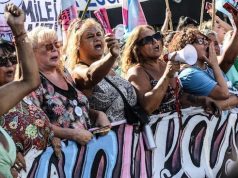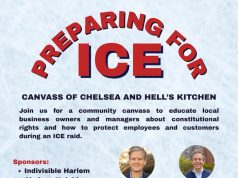headNOTE: For our three-part look at how the community is faring in the face of unprecedented federal assaults on LGBTQ+ rights, publisher and journalist Frank Pizzoli began Part I (The State of Queer Politics: What is to be Done?) with an inventory of President Donald J. Trump’s second term, then engaged writer and activist Anne-christine d’Adesky in conversation about the current state of LGBTQIA+ political activities, parallel to ongoing Trump Administration threats to established freedoms. In The State of Queer Politics II: National Organizations Rally to Formulate Strategies, Pizzoli spoke with reps from the National LGBTQ Task Force, the LGBTQ+ Victory Fund, Lambda Legal, and the National Center for LGBTQ Rights. Here, in Part III, the series concludes with Pizzoli hearing from sixforward thinkers, about paths to take and roads to forge.focused and motivated individuals
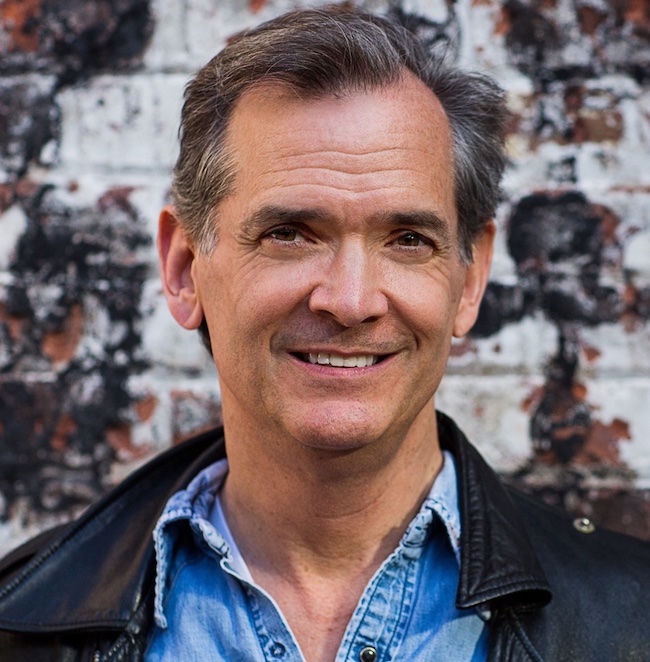
SEAN STRUB | Synonymous with numerous benchmark events in the LGBTQ and HIV movements, Sean Strub–author of Body Counts: a Memoir of Politics, Sex, AIDS, and Survival, and POZ magazine founder–told LGBTQ Community News NYC, “We must find ways to resist and mobilize others to resist wherever they are–in their neighborhoods, places of worship, workplaces, and families. Silence is complicity.”
Regarding the role LGBTQ organizations might play as threats to our freedom mount, Strub calls for “more direct action. If a broad swath of the institutional LGBTQ community leadership engaged in civil disobedience, it would inspire and prompt many others to do so as well.” He’s referring to the past fight over dismantling South Africa’s apartheid, when thousands of protesters–including hundreds of organizational leaders and dozens of members of Congress–were arrested for civil disobedience while protesting apartheid. “We need a similar effort today,” he said.
Strub seeks to find common ground and build bridges to those who are former, questioning, and soft Trump supporters, particularly around fundamental issues like access to voting and the observance of due process in our courts.
EMANUEL XAVIER | Poet Emanuel Xavier has faced street violence–and its consequences. On the evening of October 25, 2005, the well-known poet was brutally beaten at random by a street gang in Brooklyn’s Bushwick area. On his way to visit his mother, who at the time was struggling with cancer, the poet was surrounded by 15 to 20 young Latino men who violently attacked him, leaving him deaf in his right ear. At the time, the crime had not been labeled a bias attack.
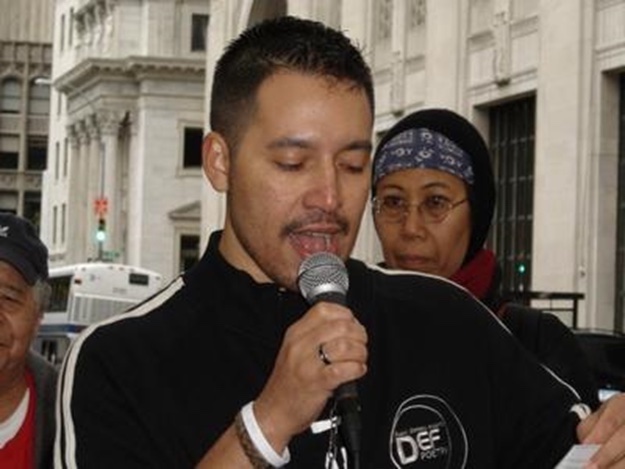
Regarding the current state of queer politics, Xavier reflects on Florida’s removal of rainbow crosswalks as its latest assault on anything same-sex. “Florida has one of the biggest gay populations in the country, one of the largest communities living with HIV, and yet, too many are still out there acting like it’s all just beach parties and drag brunches, while Gov. DeSantis paints over our history and cracks down on our visibility,” Xavier said.
“Yes, there is uproar. Yes, some are protesting. But let’s be real—it’s not nearly enough. Our community can mobilize thousands for a weekend circuit party, but can’t show up in the same numbers when our rights are literally being erased? That silence is deafening,” he laments. “Pride isn’t just about dancing in the streets. It’s about fighting for the right to still exist there.”

SEBASTIAN LEOPOLD CHERRY | On fighting for the right to exist, trans man Sebastian Leopold Cherry–who transitioned in his 30s–calls for more education and simple communication between people in order to increase the general public’s understanding of trans individuals. “This is the real me that I was always expecting to see staring back at me in the mirror,” he said.
Cherry says his experiences gives him “a unique perspective because I have lived life as a girl and as a woman–at least by society’s standards.” People need to know, he said, testosterone does not equate with muscle or strength. Being on it does not make you faster or stronger or anything. “Testosterone helped me enormously on the mental health side of things. Tasks that were once overwhelming are now doable.”
His experience illustrates the potential dangers of the Trump administration so severely de-emphasizing access to medically-driven trans health care. “I used to find life very overwhelming–like running a race that has no finish line. Since the person that my brain said I was and the person looking back it me in the mirror did not match, I became depressed. I became anxious. I couldn’t ever see a future that involved me in it. I felt like I was just along for the ride of life without really any ability to change it or control it,” Cherry said.
Relying on a movie analogy–Being John Malkovich–Cherry explains that in the movie, the main character quite literally crawls into the head of Malkovich and although he has minimal control of what actions Malkovich takes, he sees everything through Malkovich’s eyes. “That is what it feels like when a person is transgender; it’s like I was stuck inside the body and mind of someone else with minimal control. Being on testosterone changed all of that.”
Fact-based information forms Cherry’s approach. “Most people aren’t aware trans women get period symptoms every month including tender breast, cramping, and irritability. Or that transgender athletes are not dominating sports,” Cherry said. In fact, there are fewer than 10 transgender athletes registered in the entire NCAA and they very rarely end up in first place and are unfairly sensationalized when they do.
Bottom line, Cherry wants people to understand that transitioning is the number one most successful treatment for gender dysphoria. “If you want us to ‘get better,’ then allow us to transition. This isn’t playing into a delusion. It’s literally saving our lives.” He explains that when someone recommends that a transgender person get help, but not transition, even socially, “What they are really saying is, ‘I want you to get help, just not effective help’ and that’s a problem. Education is key.”
Cherry would like national queer organizations to not back down from the Trump administration. “I’d like to see the national organizations spreading knowledge and information to combat the common misinformation spread through the media. The current political regime is encouraging discrimination and violence against.” For example, in September, Republican Rep. Nancy Mace called for the institutionalization of transgender people.
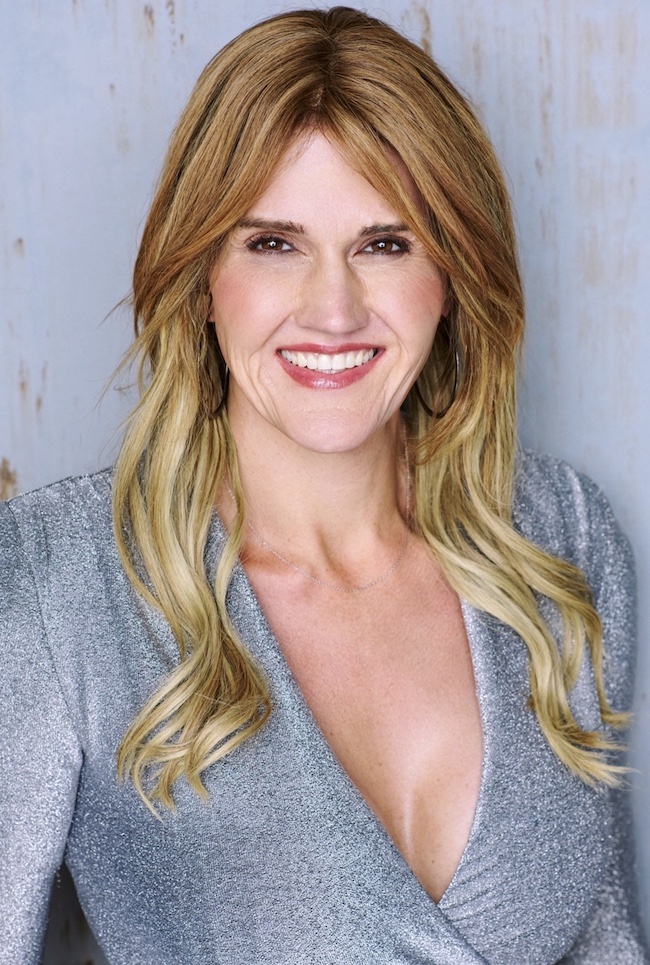
Denise Winkelman | In these troubling times, trans comedian Denise Winkelman reminds us all that we still need to laugh. Born in 1978, Winkelman who had transitioned by 2013, said by phone, “Be safe, be supportive of each other–but do not forget the importance of also having fun with EACH other, laugh a lot. Keep your joy. My fear is that if we all don’t do that, they win.”
Winkelman lives in LA, where day-to-day life is generally welcoming, “but it still takes a toll,” she said. When the national conversation frames trans people as villains, “You feel it—on your mental health and in how strangers treat you.”
She advises the queer community to “support local LGBTQ centers, know your rights, look out for one another when traveling, and make space for rest, art, and connection.”
MICHAEL PETRELIS | Besides a sense of humor, ACT UP veteran Michael Petrelis calls for a renewal of old school activism.
In his book How to Survive a Plague, author David France wrote, “Petrelis floated the idea of lesbians and gay men going out into America to challenge the status quo the way civil rights Freedom Riders had twenty-seven years earlier.” Petrelis was also the youngest member of the notorious Lavender Hill Mob, known for disrupting Centers for Disease Control meetings in the early days of AIDS.
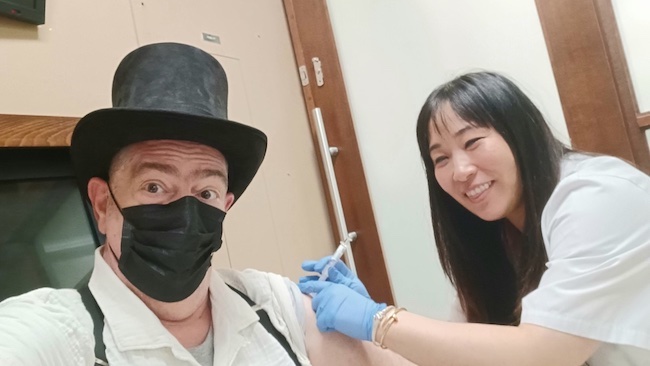
“No matter the day, I always have thoughts about how my safety net benefits, which aren’t all that great to begin with, are jeopardized and that I am one of many queers on the lower end of the economic spectrum,” Petrelis said, noting, “Living with HIV and other underlying health conditions ain’t easy. Another ACT UP isn’t on the horizon. What we could use more of are zealous advocates in the mold of Larry Kramer.”
 WAYNE BESEN | Mincing no words, seasoned activist and Chicago progressive radio host Wayne Besen told us: “The LGBTQ community is in a state of denial, lethargy, and chaos. We appear weak, disorganized, and shell-shocked.” Besen is best known for his sleepless efforts to monitor the Religious Right, to fight for equality, and to debunk the “ex-gay” conversion industry through his award-winning organization Truth Wins Out.
WAYNE BESEN | Mincing no words, seasoned activist and Chicago progressive radio host Wayne Besen told us: “The LGBTQ community is in a state of denial, lethargy, and chaos. We appear weak, disorganized, and shell-shocked.” Besen is best known for his sleepless efforts to monitor the Religious Right, to fight for equality, and to debunk the “ex-gay” conversion industry through his award-winning organization Truth Wins Out.
Besen says our community’s sputtering is understandable since we’re “trying to hold off a political tsunami with a surfboard.” Republicans control Washington and many state governments, “So there are limitations in what we can achieve through traditional political channels.”
On the role of national organizations, says Besen, “Our major organizations grew fat and comfortable, succumbing to the allure of good times and record acceptance. Sadly, that has rapidly changed, and we are again fighting to exist. LGBTQ organizations must transition into war mode, because losing isn’t an option.”
He doesn’t like the term “resistance” because “It implies weakness, and merely irritates our foes, like a mosquito. I prefer ‘victory’ because if we want a future, we must defeat the forces of fascism. I study the Religious Right for a living—they are Trump’s base, and they have wicked intentions for LGBTQ people,” he said.
Besen’s analysis is that our current paralysis comes from a well-founded fear: The queer movement knows how to succeed in a liberal democracy. “Our formula for success is quite simple: Identify how we’ve been unfairly treated, educate the public, and then offer legal or social remedies. In liberal democracies we almost always win over time, because we have a stronger case than our opposition,” Besen said.
“What our leaders are now facing is the once-unthinkable question of, how do you fight a thuggish authoritarian state with no rule of law, other than what the autocrat says the law is?”
The community, Besen asserts, “knows the answer is feral defiance, mass protest and potentially violence if Trump, for example, cancels or cheats to ‘win’ the midterm elections, which would bring our country to the brink of Civil War.” Thus, he notes, our leaders must contemplate their next steps with due trepidation, because it requires confronting a massively expanded, masked, and increasingly lawless internal police force, as well as a rapidly expanding prison detention system for detaining the opposition.”
Obviously, deciding to directly confront a police state is a big, terrifying, dangerous step. “So, our leaders are holding off, hoping the ramifications of Trump 2.0 aren’t as bad as anticipated. But with each passing week, it becomes incontrovertibly clearer that democracy is in peril, and our basic rights are in jeopardy. We may be faced with the tough decision to exist in a dystopian, Putin-type autocracy or desperately fight for our lives. The rules have changed and there is paralysis as we try to adjust and face a very harsh reality.”
Besen said “Our opponents are primarily attacking us over transgender issues, particularly when it comes to youth transitioning. This is significantly more difficult terrain to educate and defend. It has made it much easier for the Religious Right to exploit fear and attack our movement.”
No LGBTQ organization, Besen notes, “has found a winning formula to effectively fight back on this controversial topic. Exhibit A is how the Trump campaign ran millions of dollars in They/Them ads, and our major organizations were mostly silent, ceding the field to the right.”
Besen is poised to act in the near future: Truth Wins Out is choosing to fight. “We are producing a major publication that provides deep research and commentary on the 114 organizations on Project 2025’s Advisory Board,” he notes. “Then, we will use our research in 2026 to relentlessly attack these heinous organizations that are trying to end democracy and disfigure America.
Besen is adamant that the LGBTQ community “must be the tip of the spear in fighting fascism, because we have the most to lose, along with other minorities. The totalitarian Project 2025 crowd will do everything to destroy our families. If we lay down and surrender, we have no future. These religious fanatics won’t allow it.”
He foresees that at some point, we will have to hit the streets and fight like our lives depend on it. “We will begin by engaging in peaceful protest. But tragically, that may change if Trump begins to act like Putin and bans protests or deploys the police and the military to violently attack protesters.” The nation stands at the precipice of something awful. “Anything could happen, including Civil War,” he speculates, further asserting, “There are no rules—so we must not act with courtesy like we are at a fancy dance in a gilded palace…Everything is on the line, and we must begin acting like it.”
—END—
ABOUT FRANK PIZZOLI | Pizzoli’s essays, book reviews, profiles, and reviews have been published nationwide. He founded the award-winning LGBTQ newspaper The Central Voice (2003-2020) and Positive Opportunities, Inc. (1997-2017), a nonprofit that provided employment counseling and training for HIV-positive individuals. His work is chronicled in Out in Central Pennsylvania: The History of an LGBTQ Community (Penn State University Press). Pizzoli’s latest book, Passionate Outlier: Gay Writers and Allies on Their Work, is available from Rebel Satori Press.
LGBTQCommunityNews.nyc is an independent, free source of queer-centric news, arts, info, and opinion content. Our website, podcast, and quarterly newspaper are funded by advertising revenue and reader donations. To support this project, click here for the GoFundMe campaign. Questions? Comments? Click here to contact us. To join the subscriber list of our free ENewsletter, click here.



